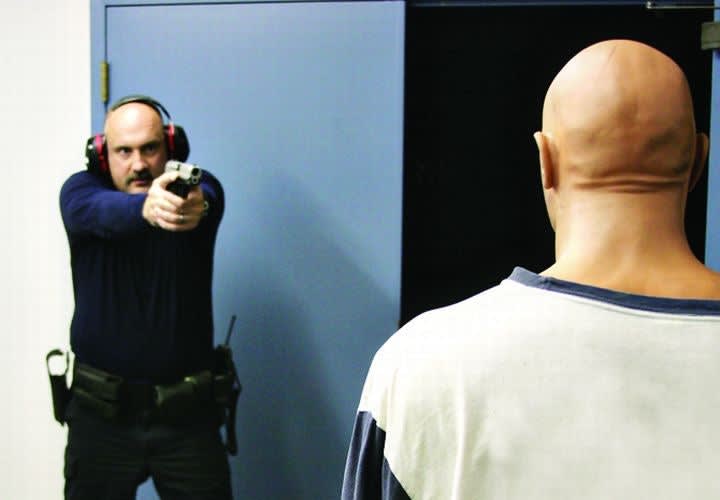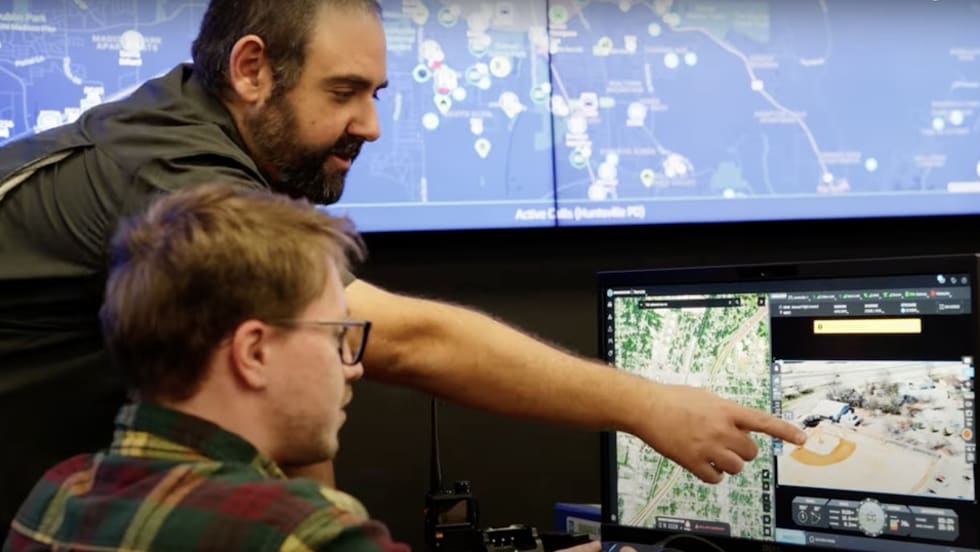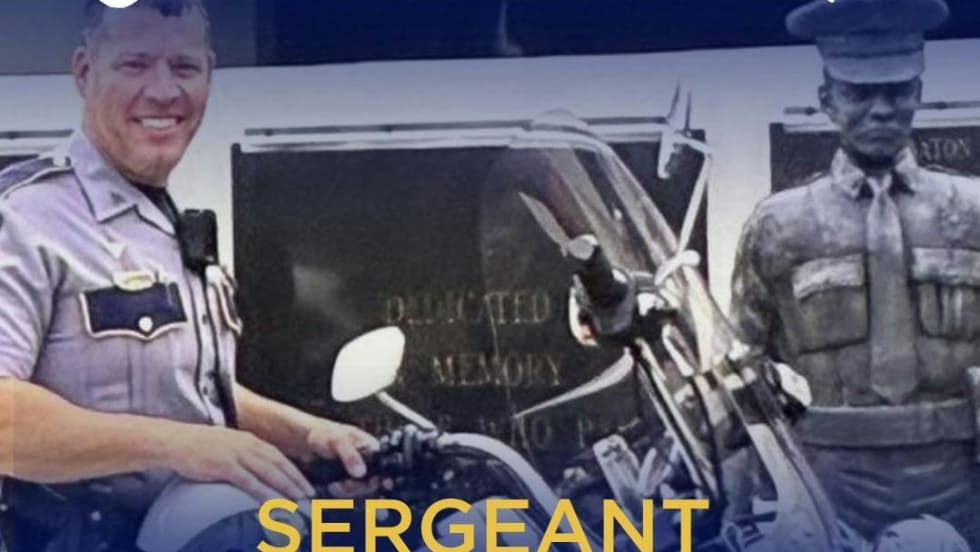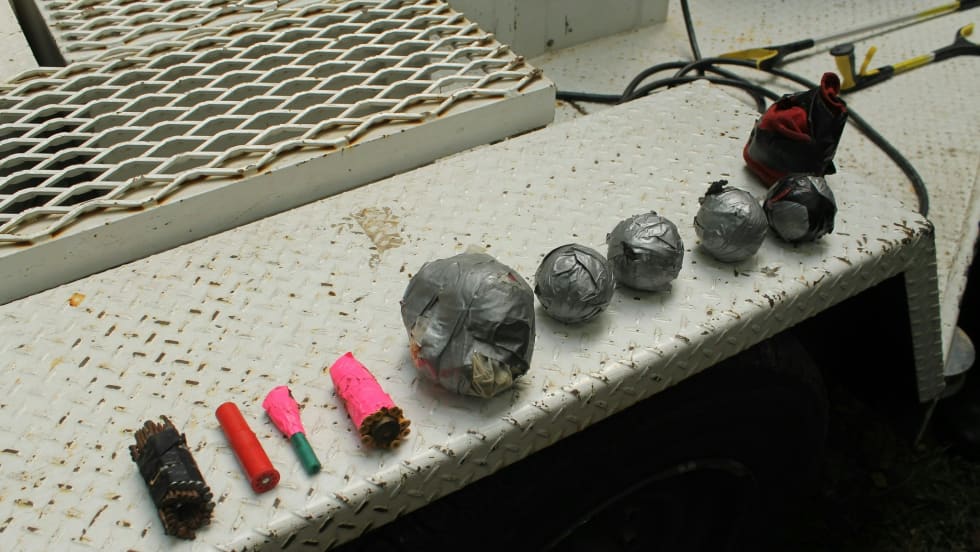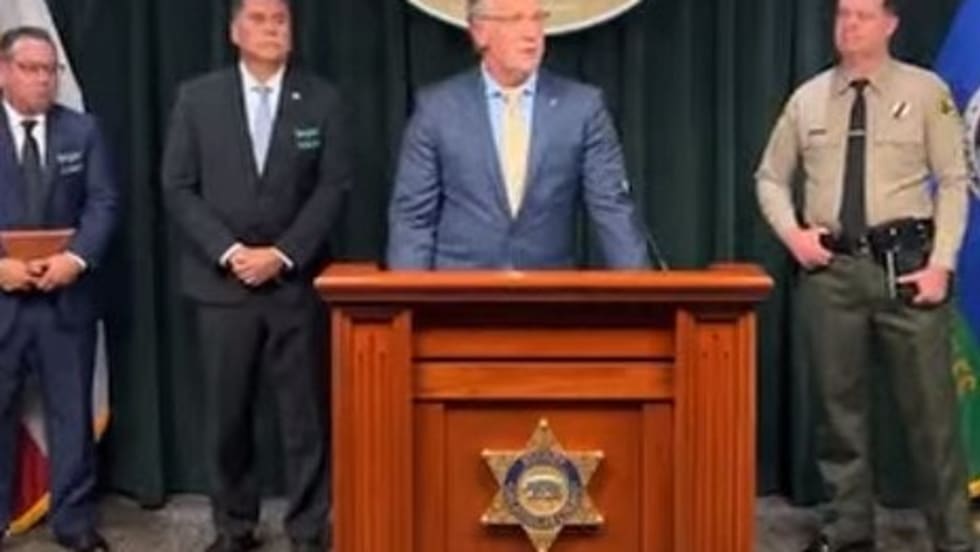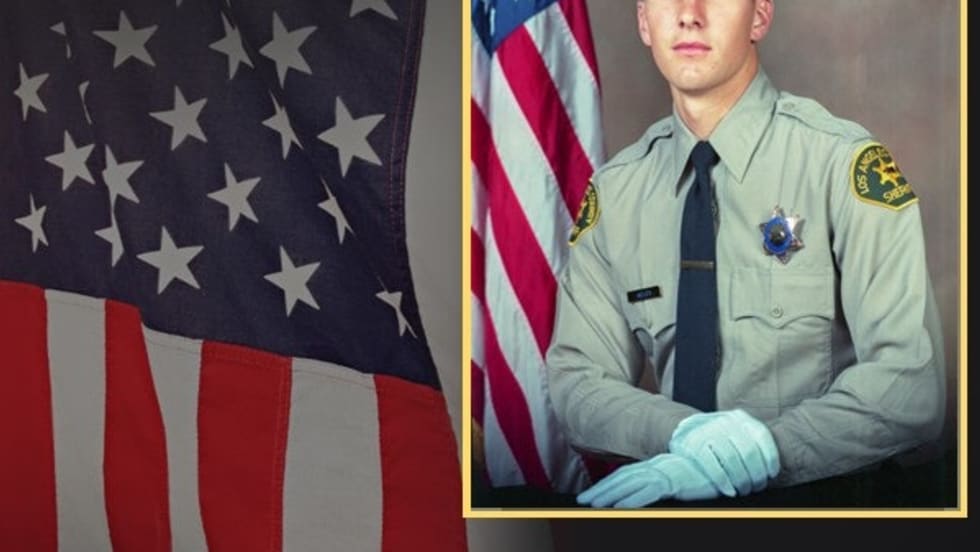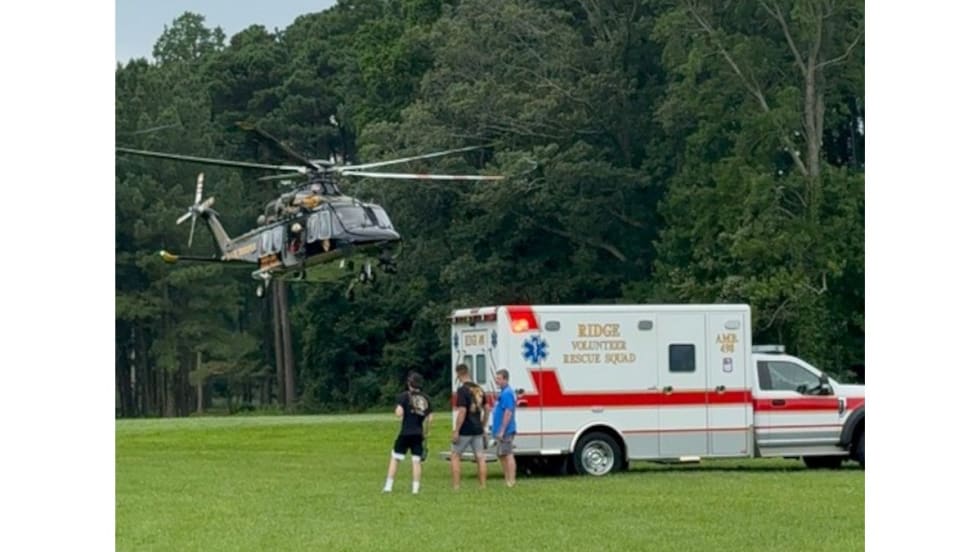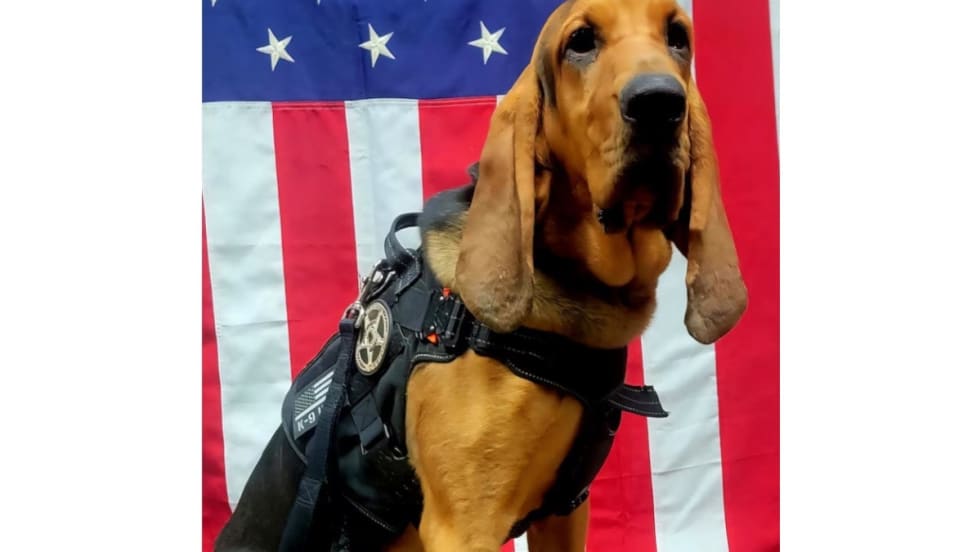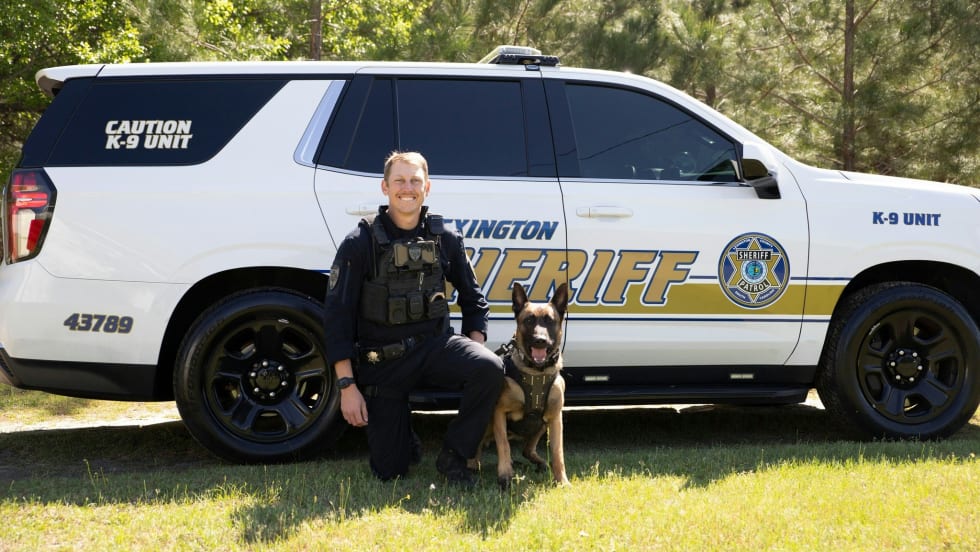The tools needed for simulating diminished hearing during training are basic: ear plugs and range ear muffs. These are effective for creating scenarios involving temporary hearing loss due to gun shots or other explosive sounds.
The art of listening can be a real asset for police officers. It helps you gather facts and is a tool for effective communication. Being able to hear well may even help keep you alive in a high-stress and dangerous situation such as tracking a violent suspect or defending yourself against an armed assailant.
But what would happen if you couldn't hear during a violent confrontation with a suspect?
Such a challenge might result from audio exclusion during high stress or injury to your ears from an accident or an attack by the suspect. For example, if you are in close proximity to a gun shot or a flash-bang discharge, your ability to hear properly can be replaced with loud ringing or compromised hearing. Any officer who accidentally forgot to put on "ears" in an indoor range while a round was discharged can attest to how rough extremely loud noises can be on your ears.
Other auditory problems can involve loud environments that drown out what you need to hear, such as radio traffic or the movements of a bad guy. This type of scenario occurs in loud machine shops, sporting events, concerts, or in confined spaces when fire alarms are blaring.
If presented with this type of disability, however temporary or long term, you could experience disorientation, panic, or expose yourself to added risk. But with prior training to this condition, you may function more safely and efficiently to accomplish an objective with diminished or lost hearing.
Equipment Needed
The tools needed for simulating diminished hearing during training are basic: ear plugs and range ear muffs to reduce your ability to hear well. These are very effective for creating scenarios that involve temporary hearing loss due to gun shots or other explosive sounds.
But this training is not just about losing your hearing from explosive noises. It's about operating under conditions where you can't hear very well. For example, you might get called to a really loud dance club. And to simulate that environment, I recommend loud stereo equipment.
Finally, another thing that you have to consider before you conduct this type of training is how to communicate with your students. They're not going to be able to hear you very well while wearing ear plugs or in a training room with loud stereo speakers blaring.
My preferred method for communicating with my students is through large colored cards. For example, you or your fellow trainers could raise a red card to signal to your students that the training should stop. Also, having other officers or trainers work as safety officers is important to maintain good communications as one of the officers' important senses-hearing-will be compromised.
Training Objectives
Training for hearing loss should include the following objectives to help prepare officers to handle a sudden loss or reduction in hearing.
Effective Communications
One of the first exercises you should practice is communicating through hand signals. Use a simple system that all participants can understand. It should include signals that indicate injury to an officer, suspect weapons, and tactical responses.
After instructing personnel on the signals, practice in pairs from different distances and under varying lighting conditions. Even if a situation doesn't involve any hearing problems, using these signals can be beneficial in situations where the officers need to maintain silence for tactical reasons.
Performing Job Tasks
By using earplugs and ear muffs, officers can simulate a reasonable degree of hearing loss. Once in this condition, practice defensive tactics techniques in drill form, with a partner or directed against a heavy bag, a trainer with FIST or RedMan gear, or on a training manikin. Despite the loss of hearing, you must still be effective in delivering strikes or practicing self-defense techniques.[PAGEBREAK]
Practice handcuffing and restraint techniques, which include training with partners. An officer who can't hear well may require direction and assistance from another officer. Use-of-force options-such as control batons, OC spray, and the TASER-acclimate officers to using them with reduced hearing.
Portable radio transmissions by an injured officer may summon backup or medical help, direct the apprehension of a perpetrator, or save a life. Practicing to speak into a portable radio in a controlled manner while not hearing a response is important. When you practice transmissions where you advise listening units or dispatch of valuable information, include the fact that you cannot hear. By providing transmissions with adequate pauses, you can pace your transmission while allowing other units to communicate among themselves during pauses.
All of these exercises should also be practiced using loud music that can cause confusion or limited communications. This will help simulate conditions where you may be able to hear, but not effectively communicate. It is here where the use of hand signals could be beneficial.
Also, crowd control and riots can have conditions where officers may have trouble hearing each other. Working in groups, communicating through hand signals, and understanding your responsibilities may help make up for other reduced or ineffective communications, such as portable radio transmissions.
Maintaining Composure
Negotiating a room and reacting to threats when you can't hear well or at all can be challenging. If not prepared, you may become confused or panic and not perform as well as you could. Conducting different scenarios where officers enter a room and address threats can be useful.
Officers will have to use their other senses, especially their sight. Rapid and ongoing visual scans can help compensate for hearing loss. Where you would normally hear rumbling, shuffling, or dislodged objects from a suspect, you will have to rely on observation, touch senses, or assistance from a fellow officer. Based on his condition, you may opt for a tactical retreat, even if it results in a suspect getting away.
Exposing officers to situational training exercises where they have to make decisions based on their current abilities develops confidence and a better understanding of what to expect. This prior exposure may help you remain calm and think your way out of a situation where you must react.
Teamwork
Like any situation where an officer has an injury, he or she can benefit from the help of other officers when hearing loss occurs during an operation.
So if you can't hear a sound, convey this information to another officer. This could involve simply pointing to your ears and shaking your head.
The other officer can then take the lead and become your "ears." Part of the training should involve the injured officer moving alongside but slightly behind the officer so that the lead officer has him in his peripheral as much as possible as they work together. The injured officer may also opt to use his support hand to hold onto the uniform of the lead officer. If the lead can't see him, he knows where he is based on the grab of the injured officer.
If the lead hears someone, he can direct his attention in that area, allowing the injured officer to follow his direction. He can also move to get the injured officer to safety. This tandem movement should be practiced as normal coordination could be compromised for the injured officer who must try to move in step as much as possible with the lead officer.
As the two officers become comfortable with this type of movement, they should practice firing their weapons in this type of arrangement. This can be done from stationary positions together or while moving as a team. Dry firing or the use of marking rounds such as Simunition is strongly encouraged for safety reasons.
Teamwork is important when an officer is injured. Working together through different training exercises that include the application of hand signals can be beneficial to the officers and develop esprit de corps.
Be Prepared
Even if this type of training is short and infrequent, it can benefit you if you experience some type of hearing loss during a tour of duty. Without hearing a word, you may still be able to communicate effectively, maintain a clear mind, and avoid panic.
By being prepared for this type of condition, you can complete your objectives which may include self-defense and control measures. Training for a hearing loss can be a valuable component of an agency's training objectives.
Tom Wetzel is a northeast Ohio suburban police lieutenant, SWAT officer, trainer, and certified law enforcement executive.


